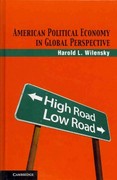Question
The Paradox of thrift just ultimately means the use of saving money and how some see it as potentially hurting the economy. The paradox of
The Paradox of thrift just ultimately means the use of saving money and how some see it as potentially hurting the economy. The paradox of thrift is all just a theory of how harmful saving money can be the the growth of the economy. Ultimately saving isn't a bad thing because eventually that money saved will be used to purchase something so therefore future consumption benefits both the buyer and society. An example of paradox thrift is an individual who may usually get a haircut every week with the same person. Say this haircut is 20$ and you're a regular client and one day you decide you want to save money for something big so you don't go get your haircut for lets say 2 months. That's 160$ gone and a loss of a client for the barber for 2 months. Although 160$ may need seem like a lot of money but if one client turns into 2 and so forth they could start to go out of business. The reverse paradox of thrift is that solely of spending increases and sales go up all along with increase in the production. All of this leads to income increasing as well. I never heard of paradox of thrift before and learning about it this week was interesting. I never really thought about how putting money into savings could potentially hurt the economy. It's crazy to think that when you up your savings you may be hurting local businesses and workers that you use to regularly go to. However, eventually the money you put in your savings will ultimately be used so future consumption will benefit both parties.
respond with value added comments to your classmate
Step by Step Solution
There are 3 Steps involved in it
Step: 1

Get Instant Access to Expert-Tailored Solutions
See step-by-step solutions with expert insights and AI powered tools for academic success
Step: 2

Step: 3

Ace Your Homework with AI
Get the answers you need in no time with our AI-driven, step-by-step assistance
Get Started


